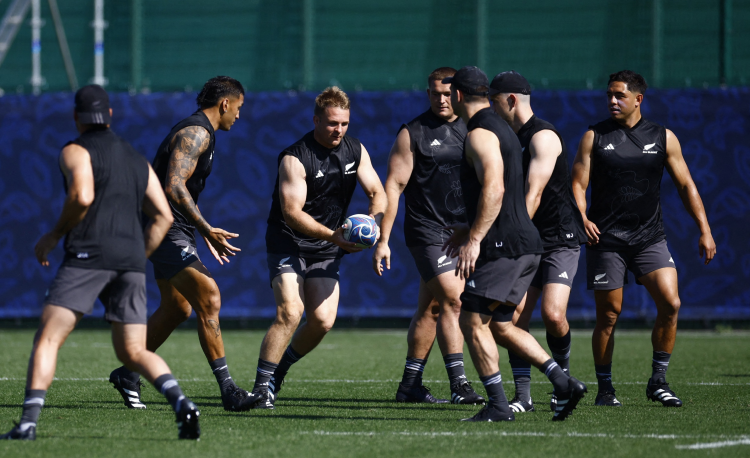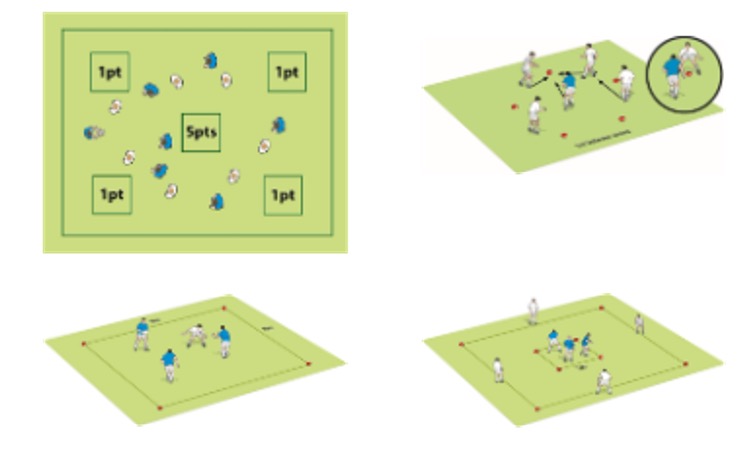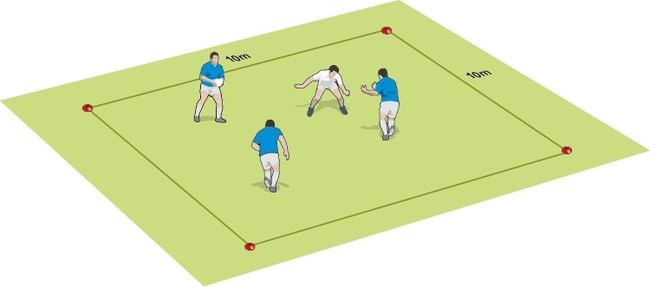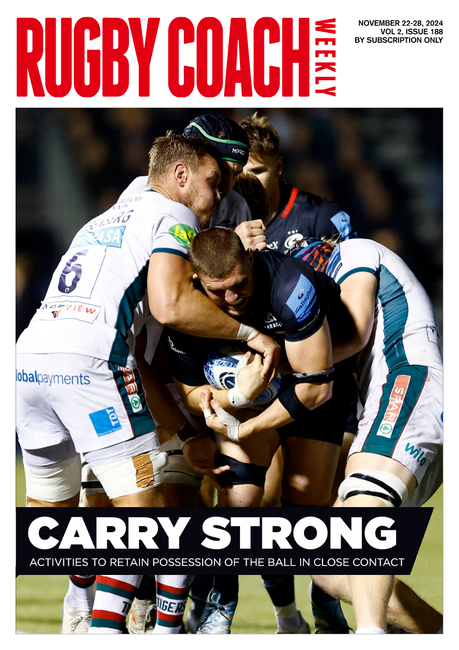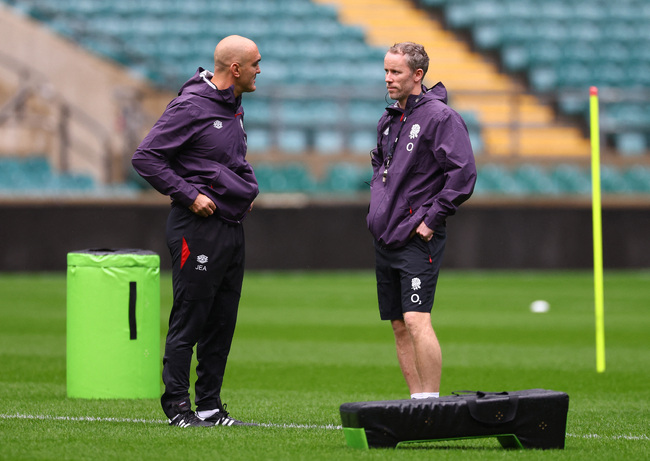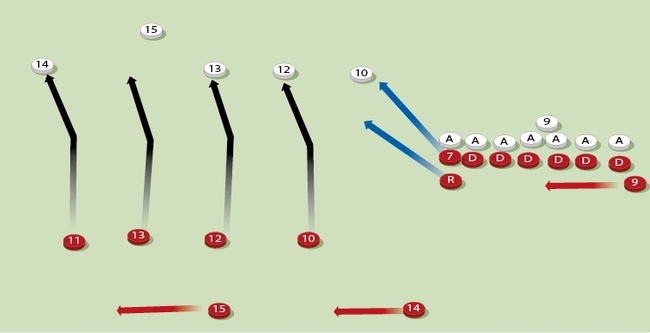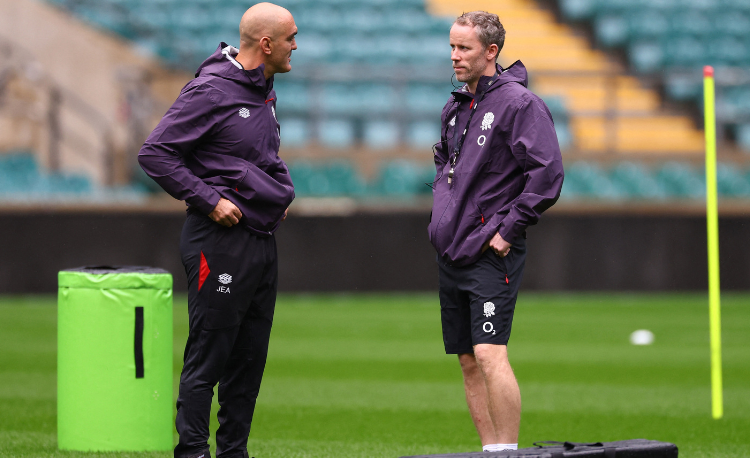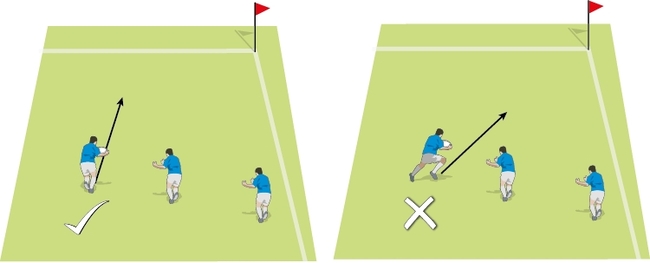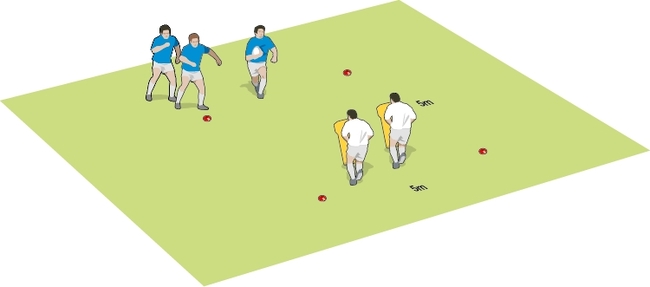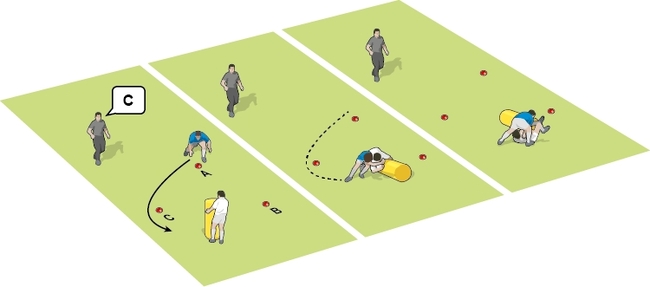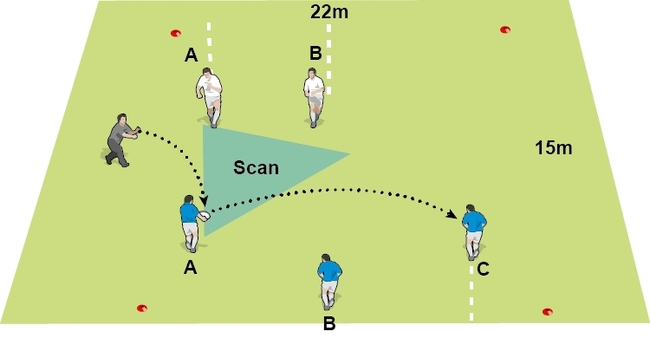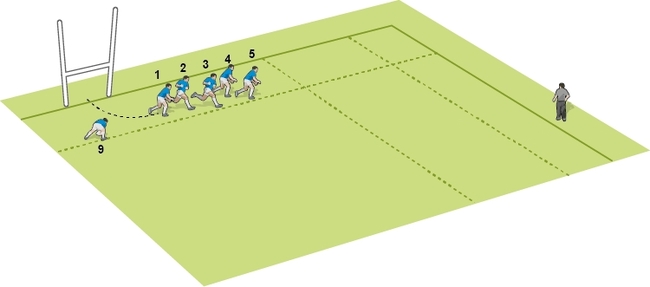Improve your rondos
Small-sided games with lots of repetitions can energise a group. But consider when, where and how to use them, says coach developer GRANT HATHAWAY.
Rugby is based on specific principles.
As an invasion sport, you need to gain possession, advance territory and bring those elements together to score.
The game is played within a set of laws, in a specific direction, with a certain number of players. This creates various types of space in different scenarios, which is, in many ways, the equal of available time - and players have tactics to try and solve all of this.
Keep the words in italics in mind.
We can use rondos to shine a light on a tiny piece of the game, maybe as a warm-up or a skill practice. It is, without doubt, a helpful tool.
Let’s revert to the third paragraph and those words in italics. If we know all of that to be true, how are we applying this match context to our application of interventions like the rondo?
Let’s say you use a 3v1 rondo. How many times does a player need to execute this in a game? How many times does a player do this in a game and what does this rondo look like?
You can ask the same questions about the classic 2v1 shape drills we often see. Sure, these techniques need developing into skills, but delve deeper and consider how these practices replicate the following:
- The direction of play in the match
- The number of players commonly involved in any given scenario
- The available time to execute
- The available space(s) which players need to find ways to exploit
- The laws which are applied in the match
- The tactics players will likely need
"The rondo is useful. How long do we spend doing it for it to retain its usefulness...?"
Remember, the rondo is a useful tool. The question we have to ask ourselves about these simplified tasks is: How long do we spend doing it for it to retain its usefulness?
Another example would be rugby netball, which has elements of match similarity, with end zones, and similar numbers to many scenarios, but still not the laws or tactics.
We should ask the ’usefulness’ question of all our practices, using the same framework to judge how long we should use them for.
Rugby’s match context has various layers of complexity and coaches will nearly always say they are time-poor. So how much time do we spend in heavily simplified practices?
We should use rondos and similar for regression, to build confidence, prime players mentally and physically and isolate solutions to a scenario. But if you want skilled transfer, you need the principles of match context.
Remember...
- Plan your practices using the Principles of Match Context to enhance the possibility of skills transferring into matches.
- During your rondos and simplified practices, stand back – notice when players are ready for a principle to be dialled up and move them onto that next stage quickly.
- Keep using rondos or practices with shortened numbers, even with individual players working through a block of skill development. This is a critical stage, as long as there is superb feedback and it gets applied into practices with progressively more match context.
Related Files
Newsletter Sign Up
Coaches Testimonials

Gerald Kearney, Downtown Las Vegas Soccer Club

Paul Butler, Florida, USA

Rick Shields, Springboro, USA

Tony Green, Pierrefonds Titans, Quebec, Canada
Subscribe Today
Be a more effective, more successful rugby coach
In a recent survey 89% of subscribers said Rugby Coach Weekly makes them more confident, 91% said Rugby Coach Weekly makes them a more effective coach and 93% said Rugby Coach Weekly makes them more inspired.
Get Weekly Inspiration
All the latest techniques and approaches
Rugby Coach Weekly offers proven and easy to use rugby drills, coaching sessions, practice plans, small-sided games, warm-ups, training tips and advice.
We've been at the cutting edge of rugby coaching since we launched in 2005, creating resources for the grassroots youth coach, following best practice from around the world and insights from the professional game.
